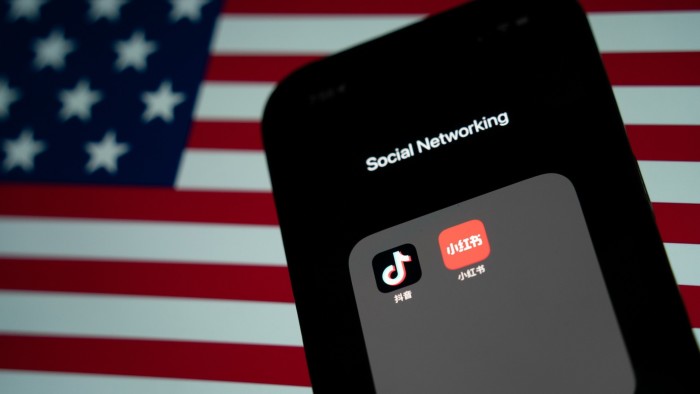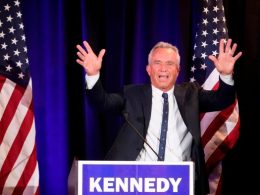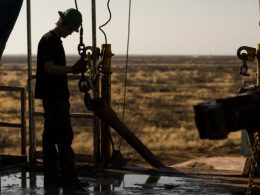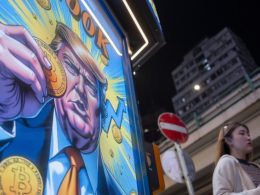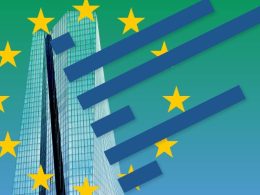Hello, this is Kenji from Hong Kong.
Like in many other parts of the world, the news here this week has been dominated by President Donald Trump. The impacts of his return to the White House are simply unavoidable, for both the city and China as a whole, probably for the next four years. The highly anticipated tariffs on Chinese goods — which were announced not on Day 1 as expected but on Day 2 — dragged stock prices southward in Hong Kong and mainland China alike on Wednesday.
Even though the changes Trump has introduced were largely expected, the start of his second term has also been filled with surprises and drastic turnarounds, presented through his half-hour long inaugural address, first batch of executive orders and other actions.
From a #techAsia perspective, what stands out so far are his policy reversals and reinforcements on automobiles, energy, manufacturing and trade, and they are also intertwined. His declaration revoking the Biden administration’s electric vehicle mandate came in tandem with the re-withdrawal from the Paris climate agreement and his “sacred pledge” to save the US auto industry and those jobs for “our great American autoworkers”.
The emphasis on American manufacturing, meanwhile, is directly tied to extracting more oil — “liquid gold”, as he calls it — while he also wants to “export American energy all over the world” to bring more wealth to the nation. There seems to be minimal consideration for the ecological consequences and environmental destruction of this approach, as reflected in his motto “Drill, baby, drill.”
This policy, if fully implemented, could possibly benefit certain industries and consumers in the US, but Zhou Xinhuai, vice-chair and CEO of Chinese state-owned oil major Cnooc, on Wednesday expressed “uncertainty” over the consequences, as it could put pressure on oil prices.
Trump also referred to his country’s proud history and past accomplishments, which is par for the course in any politician’s speech. What is not normal is infringing on the rights of others, which he did with his calls to expand “our territory” and “take back” the Panama Canal, which belongs to a sovereign Central American nation.
Panamanian President José Raúl Mulino immediately and forcefully rejected Trump’s words and even appealed to the United Nations. The whole of Canada and Denmark’s Greenland are similarly on Trump’s radar, though they were not mentioned in his speech on Monday.
Trump said he has embarked on “the revolution of common sense”, as he defines it. We have had a glimpse of that sense in his first few days back in office. There will likely be a lot more of it to come in the next four years.
The other Chinese app
The fate of TikTok in the US was arguably one of the most closely monitored issues that Trump had vowed to take up once back in office. While he granted the social media platform a 75-day grace period on Day 1 and a full reprieve could be in sight, so-called “TikTok refugees” are rushing to Xiaohongshu.
Nikkei Asia’s Cissy Zhou explains this interesting phenomenon: Washington’s political pressure on TikTok spurred the app’s American users to flock to another Chinese alternative in the name of “free speech”. This is one of the issues Trump took up in his Monday address, slamming his predecessor and vowing to “immediately stop all government censorship”.
According to multiple employees, however, Xiaohongshu “had no idea how to handle” the influx, as it had no capacity for censoring English content.
Other than TikTok, Zhou also looked into the questions surrounding the influence of Elon Musk — Trump’s largest campaign donor and the world’s richest person — in the new administration.
The billionaire behind Tesla has significant business interests in China and has previously described himself as “kind of pro-China”. He could be at odds with a number of China hawks in the second Trump administration, and may even be labelled a national security risk due to his connections to the second-largest economy in the world.
Chipping in
Chinese tech companies have a voracious appetite for artificial intelligence chips as they seek to catch up with US rivals. So when Washington stopped AI chipmaker Nvidia from selling its most powerful silicon to China, Huawei stepped in to fill a gap.
The sanctioned Chinese tech giant is looking to take market share by encouraging local companies to adopt its rival processors for “inference” tasks, writes the Financial Times’ Eleanor Olcott.
Industry insiders report that Huawei’s Ascend chips do not work well for model training due to technical glitches when the chips are put together into a large cluster. Instead, Huawei is helping customers use their chips for inference, the process of calling upon a trained model to generate a response.
The company is betting that inference will be a bigger source of future demand if the pace of model training slows and AI applications such as chatbots become more widespread.
With strong government support and impressive chip design, Huawei is seen internally by Nvidia as its most serious competitor in China.
A divided world
Even before Trump’s return to the presidency, China seems to have been well prepared for a potentially tougher line by Washington, as it was already allocating its investments away from the US and its allies.
Nikkei Asia’s Stella Yifan Xie took a deep dive into various data points to indicate that China has regained momentum in terms of overseas investment in 2024, as it is on track to hit an eight-year high, behind only the 2016 peak, when Chinese money was gobbling up trophy assets in the US. But today, the main destinations are in south-east Asia, India and the Middle East, while cutting reliance on the advanced economies in the west.
Increased Chinese investments in the global south should help avoid tariffs under the Trump administration, but the trend is also about dealing with its own issues of excess capacity. As Chen Dong, chief Asia strategist and head of Asia research at Pictet Wealth Management, points out, “the focus has shifted towards tapping into new markets for growth”.
However, Trump’s tariff on countries other than China could still disrupt companies’ relocation plans. Only time will tell on that front.
A court case and an earthquake
While Trump 2.0 dominates global headlines, Taiwan’s tech industry has plenty of nonpresidential news to offer. Nikkei Asia’s chief tech correspondent Lauly Li is following a court case in which Foxconn and its founder Terry Gou have been sued by former executive Tai Jeng-wu over a pay dispute. The issue is related to his performance as president and CEO of Foxconn unit Sharp, the Japanese electronics manufacturer.
Tai, who led the ailing Osaka-based company between 2016 and 2022, argues he was entitled to incentives and bonuses if he achieved certain benchmarks, including bringing Sharp back to the first section of the Tokyo Stock Exchange, which he did. According to one of Li’s sources, the compensation agreement was made between Tai and Gou, who was Foxconn chair at the time. Neither side has commented on the matter, as legal procedures are under way.
Staying in Taiwan, another large-scale magnitude-6.4 earthquake hit the island on Tuesday, striking near the city of Chiayi. The southwestern city is close to Tainan, where Taiwan Semiconductor Manufacturing Co operates a cluster of its most advanced chip plants. While workers were temporarily evacuated, no material disruption to production has been reported so far.
Suggested reads
-
Japan to vet investments by firms under China state influence (Nikkei Asia)
-
TikTok owner ByteDance plans to spend $12bn on AI chips in 2025 (FT)
-
Suzuki, Hyundai, VinFast to expand EVs in India as global market slows (Nikkei Asia)
-
Donald Trump says China tariffs could hinge on TikTok deal (FT)
-
Taiwan reports unprecedented undersea cable damage this year (Nikkei Asia)
-
Charlwin Mao, the RedNote founder welcoming ‘TikTok refugees’ (FT)
-
Voters across Asia contend with AI-generated fake videos and images (Nikkei Asia)
-
‘We’ve impeded China’: departing official defends US export controls (FT)
-
Trump unveils $500bn AI investment by SoftBank, OpenAI and Oracle (Nikkei Asia)
-
Is TikTok pushing Taiwan’s young people closer to China? (FT)
#techAsia is co-ordinated by Nikkei Asia’s Katherine Creel in Tokyo, with assistance from the FT tech desk in London.
Sign up here at Nikkei Asia to receive #techAsia each week. The editorial team can be reached at techasia@nex.nikkei.co.jp.
Source link





